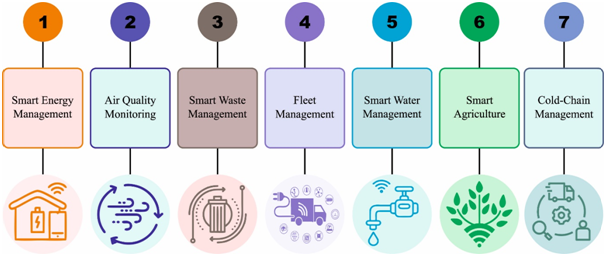
The Internet of Things (IoT) paradigm roles a crucial play to enhance smart city applications by controlling and tracking city procedures in real-time. Among the most important problems connected to smart city application is solid waste management that is a negative impression on our people's health and environment. The standard garbage management procedure starts with waste generated by city populations and garbage removal bins at the source. Smart waste management utilizing IoT contains for instance analytics and group of data in sensors on smart garbage bins (SGBs), management of waste trucks and city structure, formation and optimization of garbage truck routes, and so on. This study introduces an Elitist Barnacles Mating Optimizer with Hybrid Deep Learning Model for waste classification (EBMOHDL-WC) in the IoT enabled sustainable environment. The presented EBMOHDL-WC system allows the IoT devices to proceed data collection process. Next, the EBMOHDL-WC technique uses MobileNetv2 model for extracting features and the hyperparameter adjustment of the MobileNetv2 technique was implemented by the EBMO technique, showing the novelty of the work. Finally, the waste classification procedure is performed using HDL classifier which integrates two DL models. The experimental evaluation of the EBMOHDL-WC technique is tested on garbage classification dataset from Kaggle repository. Experimentation outcomes of the EBMOHDL-WC technique exhibit
Total file downloads: 45